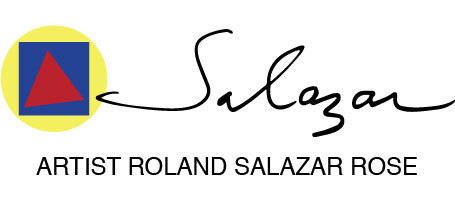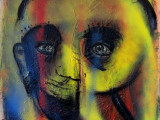HIBAKUSHA: Hiroshima and Nagasaki (August 1945)
HIBAKUSHA
Hiroshima*********************************************************************************************************************************Nagasaki
HIBAKUSHA
by Roland Salazar Rose
Hiroshima and Nagasaki August 1945 and Seventy-five years later 2020 , the Pandemic Year
The “hibakusha” are the surviving victims of the atomic bombs which fell on Hiroshima and Nagasaki, August 1945. While these individuals survived the immediate effects of the blasts, the hibakusha have suffered from the effects of radiation sickness, loss of family and friends, and discrimination.
Many hibakusha share their personal tragedies and are dedicated to promote peace and to create world free of nuclear weapons. In this the seventy-fifth memorial year of the bombings it’s required that we take time to remember all that happened and the effects its had on all of us.
Roland Salazar Rose was in military service at Corona Naval Hospital, California when the government announced the first Atomic Bomb destroyed Hiroshima. This was startling news for the World War II community, and was met with different points of view: “Great, that’s what the Jap’s deserve!” “Oh, those poor civilians!” (Several thousands Japanese soldiers were in Hiroshima at a barracks, all were killed.) Several days later, the second A bomb fell, this one on Nagasaki, and a week later Japan surrendered unconditionally to the United States. The war, that killed and maimed millions, was over.
Time to move on. And the U.S. did, as the America dream was at that time very much alive (not like now), and America started to turn tanks into cars, washing machines and all that became the late ’40s and ’50s craze for consumerism. New housing sprung up like grassland in the plains of Nebraska, and the valleys of California filled to the very edge of the cliffs edge with sprawling new homes for the millions seeking what was denied and now was achievable. In the East coast, on Long Island, Levitt developments commanded the potato fields for their massive developments of affordable housing, many of these planned communities still are occupied, but not necessarily affordable.
Roland was discharged from military service in California, and like thousands of others received unemployment assistance; the “52-20 Club,” as so called then. Returning to his home in Queens NY, and with a dull job as a clerk at a large conglomerate in the city, he sought and got approved his GI Bill for college enrollment. He went to Champlain College in Plattsburg, NY, and from there to New York University.
Roland, and many ex-military lived well after the end of WW II; the war brought the “Greatest Generation” prosperity. The “Hibakusha,” who might dare face a mirror, saw only terrible scars and lived with and died from radiation sickness.
Now: seventy-five years later, we continue to move on! But, stopping and remembering is always needed, now, more than ever in this Pandemic Year of 2020. And, we must always stand for no more wars.” Roland Salazar Rose
All rights reserved
 Salazar
Salazar
